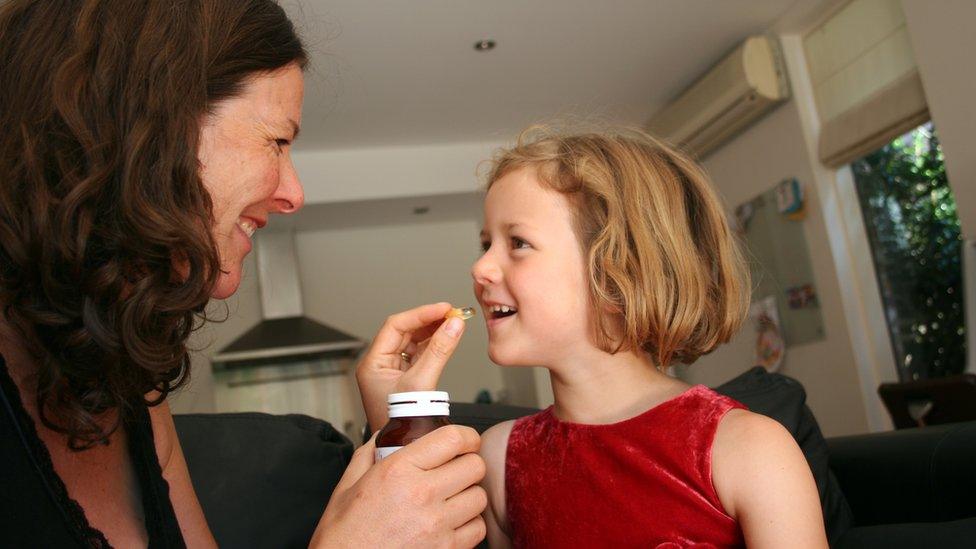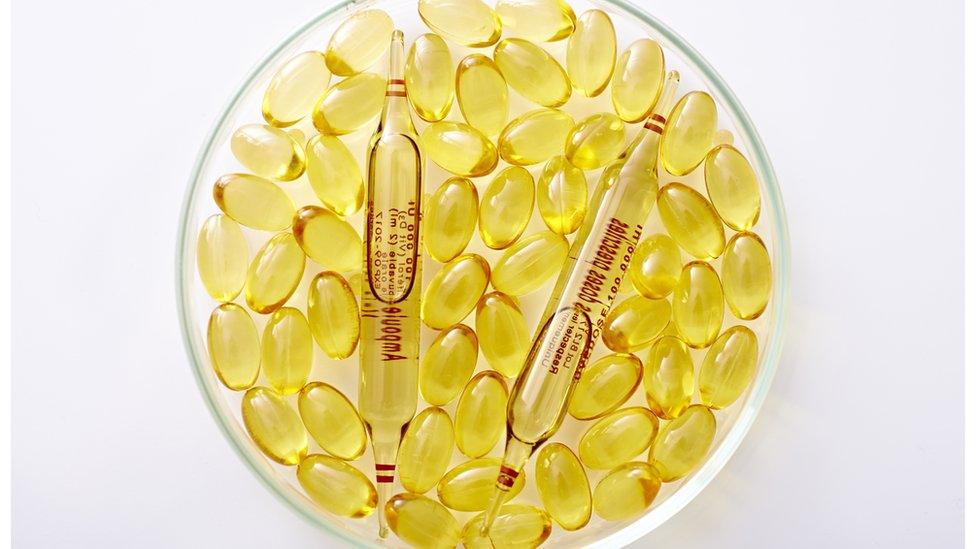Did you know you should give under-fives vitamin tablets?
- Published

Children between the age of six months and five years should take vitamin A, C and D supplements, government advice says - do you find this surprising?
If you do, it seems you're not alone.
Researchers in Wales found only 30% of parents and carers said they had ever been given advice by a health professional about giving young children vitamin supplements.
And nearly two-thirds (64%) of those asked said they didn't give their children vitamin supplements.
The Department for Health (DoH) recommends all children aged six months to five years should be given supplements containing vitamins A, C and D every day.
This advice has been in existence since the early 1990s, when it was endorsed by the then committee on medical aspects of food policy.
The DoH also says breastfed babies should be given a daily vitamin D supplement from birth.
'Thought healthy diet was enough'
The Welsh researchers wanted to find out how well known this advice was among parents and carers.
They surveyed adults accompanying children at paediatric out-patient clinics in two hospitals in Swansea.
A total of 101 filled out questionnaires designed to test their knowledge of the guidelines., external
The researchers said the most common reasons given by parents for not giving their children vitamin supplements were:
They were unaware that they should/had not been advised
They thought a healthy diet was enough
"We are concerned that the majority of carers participating in our survey do not follow guidance around vitamin supplementation for their young children," the report says.
"Many seem unaware of recommendations, suggesting that health professionals are not providing them with information.
"We feel that action needs to be taken to raise carers' awareness and encourage a much wider use of vitamin supplements in the under-fives, with health professionals adopting a more proactive approach."
Dr Bethan McMinn, paediatric registrar at the Abertawe Bro Morgannwg University Health Board, said the complexity of the guidelines could be a barrier for effective information sharing between professionals and parents.
She said that while the DoH recommends all children aged six months to five years take a daily supplement, the National Institute for Health and Care Excellence has recently updated its advice.
It now says that all babies from birth to one year should take a daily Vitamin D supplement - but this does not apply for infants having 500ml a day of formula milk.
Dr McMinn acknowledges her research is small scale, but says it could well reflect the situation across the UK.
"Our project was conducted in Swansea, Wales so it is difficult to comment on whether our findings reflect the situation across the UK in general.
"However it would not surprise me if this were the case."

Prof Mary Fewtrell, nutrition lead at the Royal College of Paediatrics and Child Health, said the Swansea research suggested healthcare professionals were not routinely sharing the information with new parents.
"I suspect in large part this is due to the complex and conditional nature of the guidelines leading to confusion and that we would be likely to see a similar picture in other parts of the country.
"Further research is needed to establish if this is the case and, if so, how to best overcome these challenges so that our children can receive the best possible nutrition."
Prof Louis Levy, head of nutrition science at Public Health England, said: "All children aged six months to five years should take a supplement containing vitamins A, C and D.
"This is a sensible step because growing children may not get enough of these vitamins - especially those not eating a varied diet."
The research was presented at the Welsh Paediatric Society autumn clinical meeting.
- Published21 July 2016

- Published12 July 2016
